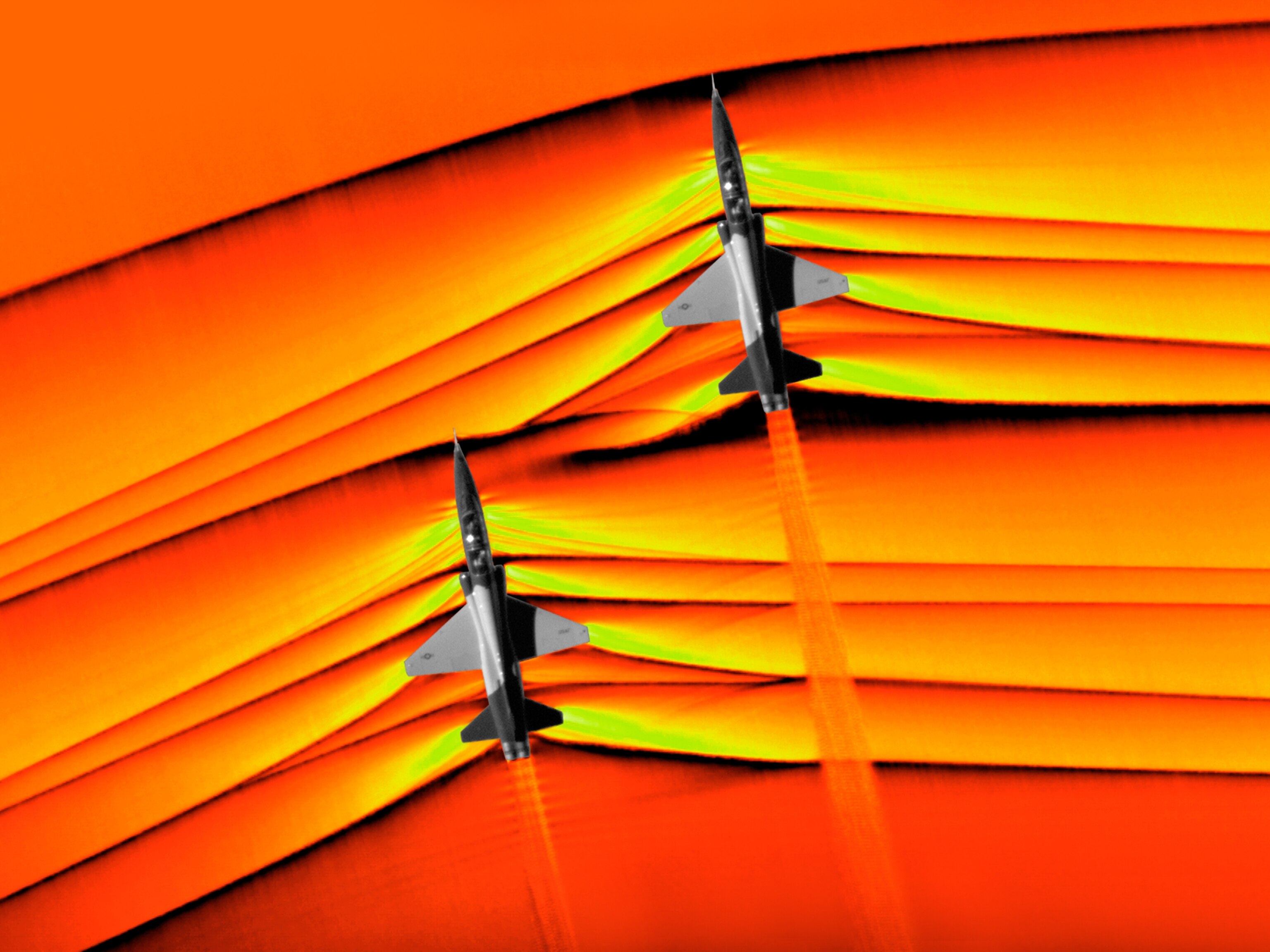Here’s What Makes a Dripping Faucet Go ‘Plink’
Annoyed by the persistent dripping of water in a bucket, one scientist set out to learn what creates the distinctive sound.
Plink. Plink. Plink.
It's the sound of water droplets falling one after another, maybe from a leaky faucet or through a cracked ceiling. It's the kind of sound that can keep you up all night.
University of Cambridge engineer Anurag Agarwal feels your pain. While visiting a friend in Brazil in 2016, Agarwal couldn't ignore the water that steadily dripped through the leaky roof and fell into a bucket below. “It was a rainy period, and the downfall was torrential,” he says.
Equal parts annoyed and intrigued, Agarwal began to wonder how the falling droplets made their distinctive sounds—an explanation science didn't have. It couldn't be just the impact; Agarwal notes that banging your fists on a desk will make noise, but “it doesn't have that musical quality.”
In 2017, Agarwal took the question to an undergraduate lab at Cambridge, which used high-speed cameras, an underwater microphone, and a microphone on dry land to capture precisely when and how a falling droplet of water plinks.
At the moment of impact, the drop makes no sound. But just a few milliseconds after impact, the droplet forms a cavity that recoils and creates a small column of liquid. The fast recoil then creates a small, water-trapped air bubble that's responsible for the plink. The bubble oscillates 5,000 times in a second, which makes the water vibrate and generate the iconic, annoying tone.
The recognizable plink occurs only when a water droplet lands in water; a drop landing on a dry, wooden surface leaves only a dull thud. Agarwal also found that soapy water prevents the air bubble from oscillating well enough for a droplet to plink.
Agarwal and his research team published their findings in the journal Scientific Reports. He thinks this better understanding of how droplets make noise could one day help video game and movie sound engineers better replicate the sound of water dropping into a bucket, but he notes this study was done mostly out of curiosity.
His other motivation? Finally knowing “what [we] can do to get rid of it.”
You May Also Like
Go Further
Animals
- Octopuses have a lot of secrets. Can you guess 8 of them?
- Animals
- Feature
Octopuses have a lot of secrets. Can you guess 8 of them? - This biologist and her rescue dog help protect bears in the AndesThis biologist and her rescue dog help protect bears in the Andes
- An octopus invited this writer into her tank—and her secret worldAn octopus invited this writer into her tank—and her secret world
- Peace-loving bonobos are more aggressive than we thoughtPeace-loving bonobos are more aggressive than we thought
Environment
- This ancient society tried to stop El Niño—with child sacrificeThis ancient society tried to stop El Niño—with child sacrifice
- U.S. plans to clean its drinking water. What does that mean?U.S. plans to clean its drinking water. What does that mean?
- Food systems: supporting the triangle of food security, Video Story
- Paid Content
Food systems: supporting the triangle of food security - Will we ever solve the mystery of the Mima mounds?Will we ever solve the mystery of the Mima mounds?
- Are synthetic diamonds really better for the planet?Are synthetic diamonds really better for the planet?
- This year's cherry blossom peak bloom was a warning signThis year's cherry blossom peak bloom was a warning sign
History & Culture
- Strange clues in a Maya temple reveal a fiery political dramaStrange clues in a Maya temple reveal a fiery political drama
- How technology is revealing secrets in these ancient scrollsHow technology is revealing secrets in these ancient scrolls
- Pilgrimages aren’t just spiritual anymore. They’re a workout.Pilgrimages aren’t just spiritual anymore. They’re a workout.
- This ancient society tried to stop El Niño—with child sacrificeThis ancient society tried to stop El Niño—with child sacrifice
- This ancient cure was just revived in a lab. Does it work?This ancient cure was just revived in a lab. Does it work?
- See how ancient Indigenous artists left their markSee how ancient Indigenous artists left their mark
Science
- This 80-foot-long sea monster was the killer whale of its timeThis 80-foot-long sea monster was the killer whale of its time
- Every 80 years, this star appears in the sky—and it’s almost timeEvery 80 years, this star appears in the sky—and it’s almost time
- How do you create your own ‘Blue Zone’? Here are 6 tipsHow do you create your own ‘Blue Zone’? Here are 6 tips
- Why outdoor adventure is important for women as they ageWhy outdoor adventure is important for women as they age
Travel
- Slow-roasted meats and fluffy dumplings in the Czech capitalSlow-roasted meats and fluffy dumplings in the Czech capital
- Want to travel like a local? Sleep in a Mongolian yurt or an Amish farmhouseWant to travel like a local? Sleep in a Mongolian yurt or an Amish farmhouse
- Sharing culinary traditions in the orchard-filled highlands of JordanSharing culinary traditions in the orchard-filled highlands of Jordan




